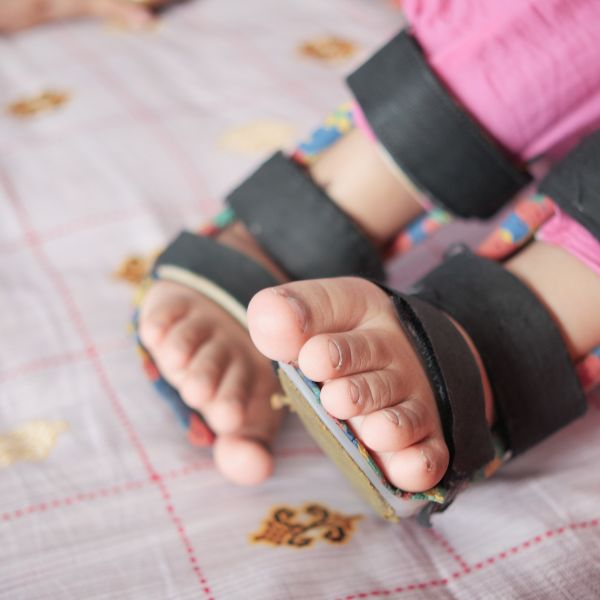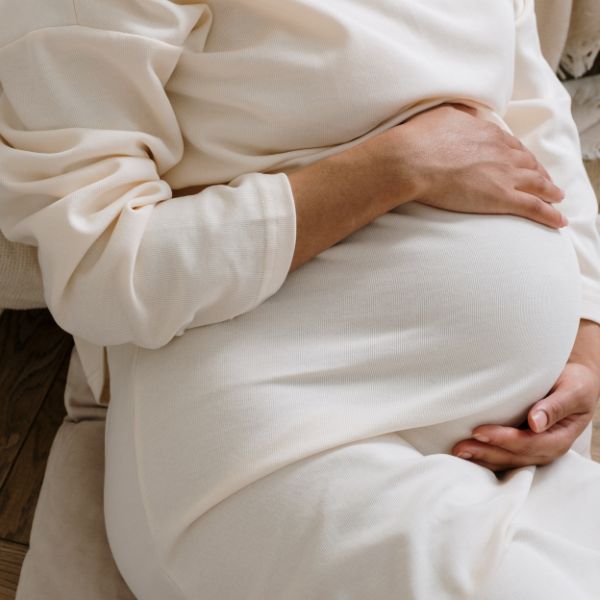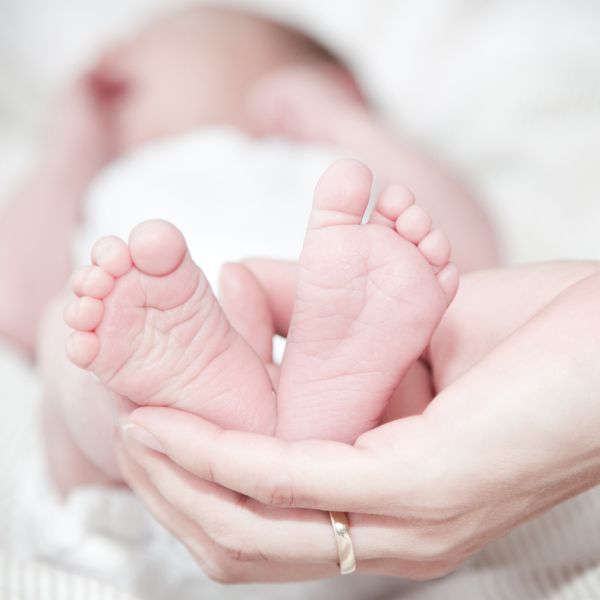International Group B Strep Awareness Month...
Childbirth Anaesthesia Error Claim Solicitors.
Alongside traditional analgesic pain relief, anaesthesia is now used routinely in childbirth, and when it is administered correctly it can help mothers to have a more comfortable birthing experience.
It works by reducing or eliminating the pain associated with labour and delivery, or providing a loss of feeling and pain relief during a caesarean section.
Anaesthetics are administered by an anaesthesiologist, and the majority of the time there are no issues. However, even the most highly trained anaesthesiologists can occasionally make mistakes when administering anaesthesia during childbirth, which can lead to problems for the mother and/or baby.
If you received anaesthesia during childbirth and you or your baby suffered undue harm due to the medical negligence of the anaesthesiologist or any other medical professional involved in your care, you may be able to claim compensation.
Speak to us here at Lanyon Bowdler today to find out more, our team of medical negligence solicitors are always happy to help.
What is Anaesthesia?
Anaesthesia is a type of medication typically administered intravenously or inhaled, which produces a loss of sensation and/or consciousness, allowing for surgical procedures to be performed safely. Under general anaesthesia your body doesn’t feel pain or respond to reflexes, and a local anaesthetic provides numbness and pain relief to a localised area of the body, whilst you remain conscious.
General anaesthesia serves the following purposes during surgery:
- Analgesia (pain relief)
- Loss of memory of the procedure
- Loss of consciousness
- Paralysis
- Weakened autonomic responses
Childbirth requires active participation from the mother, so you would not receive general anaesthesia during a vaginal delivery due to the loss of consciousness involved.
Why Might Anaesthesia Be Necessary During Childbirth?
Childbirth may be a natural process, but it can be an incredibly painful experience for the majority of mothers, and in some instances it may be necessary for surgical intervention to protect the mother and baby. Anaesthetic administered during a vaginal birth should provide adequate pain relief, whilst ensuring the mother can still actively participate and push when necessary. The most common type of anaesthesia in this case is an epidural – that is an injection into the spine – which allows the mother to still feel the contractions, just with less intensity, and also does not affect the baby’s life functions during the birth.
Occasionally there may be cause for doctors to use a general anaesthetic in order to perform caesarean delivery. This would typically be necessary if the local anaesthetic fails to work, if there is a medical emergency in which the benefits of using general anaesthesia outweigh the risks, or if the mother has a medical issue such as back problems, a bleeding disorder, or a blood clotting condition which prevents her from being able to receive a spinal injection. In some circumstances an emergency caesarean may be necessary when the baby is already partly in the birth canal, in which case general anaesthesia is easier to administer than a spinal block.
What Happens When General Anaesthesia Is Administered?
If it is deemed necessary to administer a general anaesthetic during childbirth, you will receive some medication intravenously via a cannula in your hand, followed by a mixture of gases which you will inhale via an airway mask. The anaesthesiologist will then position an endotracheal tube down your windpipe to aid your breathing during the procedure and prevent aspiration.
Once the caesarean section is complete, the anaesthesiologist will bring you back to consciousness.
As the drugs begin to wear off you may feel quite groggy, and experience side effects including:
- Nausea and vomiting
- Sore throat
- Dry mouth
- Shivering and chills
- Fatigue
The anaesthesiologist will keep you informed at each stage, ensuring that they prioritise your wellbeing and that of your baby throughout the delivery procedure.
Our Childbirth Anaesthesia Negligence Expertise
Our Childbirth Anaesthesia Negligence Solicitors are leading experts in this field of the law, and can help you obtain the compensation you deserve for the effects you or your baby may have suffered because of the negligent behaviour of medical staff.
At Lanyon Bowdler, our people are your team. We pride ourselves on handling each case with a professional yet personal approach, guiding you step-by-step throughout the whole process, and ensuring we achieve the best possible financial outcome for you.
Our award-winning medical negligence team consists of highly trained solicitors, as well as an in-house doctor and a nurse, which means we can cover all bases when it comes to your childbirth anaesthesia compensation claim.
We are recognised by the Legal 500 and Chambers UK the leading legal directories, with our clinical negligence team being amongst those acknowledged in their 2025 editions. If you’d like one of the leading medical negligence teams in Shropshire, Herefordshire, Mid & North Wales, and the Midlands to be on your team, we’d love to hear from you.
Your Childbirth Anaesthesia Negligence questions answered
Anaesthesiologists must undergo extensive training before being allowed to practice; however, mistakes can occasionally still happen.
There are several ways in which things may go awry during the administration of local or general anaesthetic, including:
- Medication preparation: The anaesthesiologist may use the wrong type of needle, the wrong type of medication, or the wrong dosage, all of which can be harmful to patients.
- Medication administration: When administering a spinal block or epidural, the anaesthesiologist must insert the needle between the L3 and L4 vertebrae, penetrating the spinal column, without puncturing the spinal sac. If the needle is not inserted in the correct place, it can have serious repercussions for the patient.
If you or your baby have experienced an injury or any medical problems after receiving anaesthesia during childbirth, our team of medical negligence solicitors can help you to claim the compensation that you may be entitled to.
As with all medical procedures, the administration of general anaesthetic during childbirth can carry some risks to both the mother and baby, especially when an anaesthesiologist is negligent in their duties. These risks can range from minor inconveniences, to life-altering injuries and conditions.
For the mother, these risks can include:
- Aspiration – which is when stomach acids and other fluids enter the lungs, potentially causing pneumonia
- Damage to the windpipe when inserting the endotracheal tube
- Toxic reaction to the anaesthetic medications
- Anaesthesia awareness – which is when a patient regains consciousness during the procedure, potentially causing PTSD-like symptoms
- Feverishness, nausea, and/or vomiting
- Prolonged labour
- Septic meningitis
- Seizures
- Paralysis
- Nerve damage
- Breathing difficulties
- Backache and spinal problems
- Bladder or bowel incontinence
- Cardiac arrest
And in some cases, negligent administration of anaesthesia can be fatal.
When the mother suffers from anaesthesia problems, the baby may experience decreased blood flow, and oxygen deprivation, leading to problems such as:
- Fetal lethargy
- Fetal distress
- Respiratory problems
- Brain injury
- Cerebral palsy
- Abnormal heart rate
- Poor sucking reflex, leading to feeding problems
- Jaundice
- Drug toxicity
- Poor muscle tone
- Death
The anaesthesiologist is responsible for determining the correct dosage of medication to provide pain relief and/or loss of consciousness during childbirth, whilst ensuring the safety of you and your baby. If the anaesthesiologist has been negligent in their care of you and your child, you may have a case for claiming childbirth anaesthesia compensation.
Please get in touch with us and our team of highly qualified and experienced clinical negligence lawyers will be happy to assist you in any way we can.
The amount of compensation you may be entitled to will vary depending on a number of different factors. Your case will be assessed by our clinical negligence solicitors so that we can provide you with the best advice with regards to the potential compensation amount.
When assessing your case, we will take into account a number of things, including:
- What injuries or complications occurred due to the anaesthetic error
- How severe your injuries and complications are
- How much treatment you have already had to undergo
- The potential for further treatment in the future
- The psychological effects of the incident
- Any loss of earnings you have already incurred
- Any potential future loss of earnings
- Any expenses incurred for treatment already received
- Any future expenses for ongoing treatment
In order to help us put together your anaesthesia compensation claim we will require as much information as possible. We will discuss everything with you thoroughly, and you will be asked to provide any supporting evidence that you may have, such as medical records or photographs of your injuries where applicable. Once we have all of the information we need, we can accurately estimate how much compensation you are likely to be awarded in court.
Errors involving anaesthesia during childbirth fall into the category of clinical negligence, and within this area of law, claimants have three years from the date the suspected negligence occurred, or three years from the date that you first found out about the error, in order to make your claim for compensation.
If you feel that you may have a case for suing the hospital that treated you during childbirth, please contact our team as soon as possible so that we can get started on your case without hesitation.
Whether your childbirth experience took place in an NHS hospital or a private practice, the first step in making a claim for childbirth anaesthesia clinical negligence is to contact a solicitor who specialises in medical negligence cases. It’s always advisable to seek legal advice as early as possible once you suspect that clinical negligence has played a part in your injuries, in order to begin your claim within the legal time limit.
It can help to speed up your case if you are able to gather as much supporting evidence as possible. Once we have received your evidence and supporting documents, we can begin to put your case together, ensuring that we are as thorough as possible, before seeking to either settle your claim or present it to a judge in court,
If you are unsure about how or when to begin your compensation claim, or your entitlement to make a claim, please don’t hesitate to get in touch with us here at Lanyon Bowdler. Our medical negligence solicitors have the knowledge, experience, and expertise to offer advice and handle your claim with the dignity and compassion you deserve.
What our clients say.
Contact us
At Lanyon Bowdler, we take pride in being a friendly and approachable law firm, so please get in touch if you have been affected by anaesthetic malpractice during childbirth. Our team of specialist Birth Injury Lawyers are part of our award-winning medical negligence team, we will be happy to talk you through the process of filing a compensation claim.
If you think you or a family member has been treated negligently by a hospital or medical staff during pregnancy or childbirth, which has resulted in injuries to the child or mother, then it is likely you are entitled to make a Medical Negligence Claim. Give us a call or complete our online enquiry form, to see how our team can help you get the justice and compensation you deserve. There is no obligation on you or any charges for our initial assessment.
By choosing Lanyon Bowdler for your Childbirth Anaesthetic Medical Negligence Claim, you can rest assured that you have the best legal expertise on your team. Lanyon Bowdler’s Medical Negligence team is widely acclaimed and recognised as one of the best clinical negligence departments in the country. We are committed to providing exceptional levels of client care and will work closely and considerately with you to help find the best outcomes and help to get your life back on track.
We have offices in Shrewsbury, Bromyard, Conwy, Hereford, Ludlow, Oswestry, and Telford, so are able to act for clients all over Shropshire, Herefordshire, Mid and North Wales and across the Midlands (including Wolverhampton & Birmingham). As a leading full-service law firm, we can represent you wherever you live in England or Wales.
Meet the team.
Case studies.
Latest knowledge.
Our awards and accolades.
Get in touch.
"*" indicates required fields

 Back
Back






























 Blog
Blog











